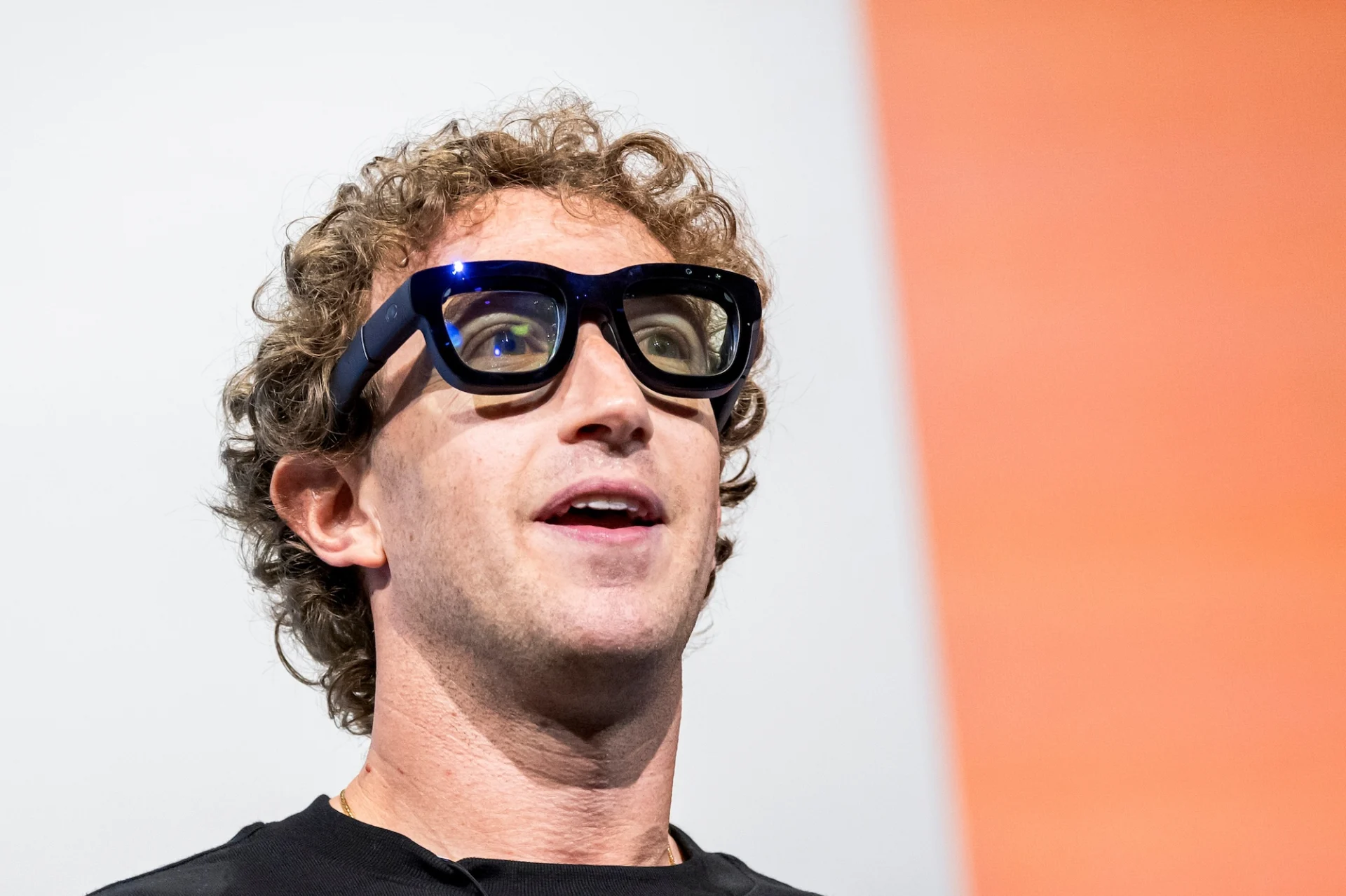For nearly three decades, smartphones have defined how we communicate, work, and interact with the world. However, according to Mark Zuckerberg, CEO of Meta, we may be approaching the end of the smartphone era. In a bold prediction, Zuckerberg has outlined a future where smart glasses take centre stage, replacing smartphones as our primary digital interface.
In a recent interview, Zuckerberg explained that the future of technology lies in devices that are more natural, immersive, and socially integrated—and smart glasses are leading that charge.
Why Smart Glasses Could Replace Smartphones
Zuckerberg believes the future of computing will shift away from handheld devices toward wearable technology that blends seamlessly into daily life. He notes a growing demand for tech that doesn’t disrupt human interaction—devices that feel more like extensions of ourselves.
“The trend is toward omnipresent, intuitive, and social technology,” Zuckerberg said. “Smart glasses will allow us to interact with the digital world while staying engaged in the physical one.”
Unlike smartphones, which require us to look down and disconnect, smart glasses promise hands-free access to digital tools, real-time information, and even augmented reality overlays—all from a single pair of lenses.
Meta’s Vision: The Orion Smart Glasses
Meta’s investment in wearable tech is exemplified by its development of the Orion smart glasses, a product Zuckerberg believes will replace phones in everyday use by the 2030s. These glasses are designed to provide users with core smartphone features—like messaging, navigation, voice commands, and AR-enhanced interactions—without needing to reach for a screen.
“There will be a time when your smartphone stays in your pocket because your glasses can do it all,” Zuckerberg predicts.
This shift will redefine the tech landscape, just as smartphones once displaced feature phones and laptops for on-the-go access.
From Screens to Lenses: How Smart Glasses Work
Smart glasses aren’t just a novelty—they’re powerful computing tools designed to act as virtual assistants and digital companions. Key features may include:
- 📍 Real-time GPS navigation and directions
- 🌐 Live translations and language support
- 📰 Instant access to news and notifications
- 🎧 Voice-controlled interactions and audio assistance
- 🕶️ Augmented Reality (AR) overlays on the real world
Imagine walking through a city and receiving contextual information about landmarks or getting reminders and messages projected discreetly into your line of vision—all without pulling out your phone.
Challenges Ahead for Smart Glass Adoption
While smart glasses have enormous potential, several challenges remain. Concerns around privacy, battery life, design, and user adaptation need to be addressed before mass adoption becomes a reality.
However, major tech players like Meta and Apple are pushing boundaries—through products like Meta’s Ray-Ban Smart Glasses and Apple’s Vision Pro—and the industry is moving fast toward a wearable-first future.
Are Smartphones Becoming Obsolete?
Zuckerberg’s forecast isn’t an isolated opinion—it reflects a growing sentiment in the tech world. As AI, AR, and wearable technologies evolve, smartphones may soon feel outdated, much like flip phones were replaced in the early 2000s.
While smartphones won’t vanish overnight, their role will gradually shift. More and more users will rely on wearables for everyday tasks, with phones as secondary tools or backup interfaces.
Final Thoughts: The Future Is Wearable
The rise of smart glasses marks a turning point in personal technology. As we enter the 2030s, we’ll likely interact with the digital world through lenses, not screens.
Zuckerberg’s vision suggests a world where technology enhances human connection rather than distracting from it. Whether navigating the city, translating a foreign language, or attending a virtual meeting, smart glasses could be your new go-to device.
The end of smartphones may be closer than we think—and the next generation of computing will be worn, not held.
For more tech news and insights, visit Rwanda Tech News, and explore similar topics and trends in the world of technology.



